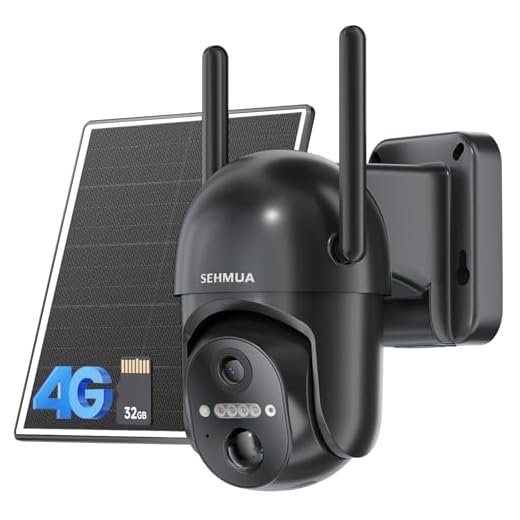




In the modern world, security cameras have become an essential part of our lives, providing surveillance and peace of mind. However, many people are concerned about the privacy and security risks associated with internet-connected devices.
So, is there a solution for those who want the benefits of security cameras without the need for internet connectivity?
Fortunately, there are security cameras available that don’t require an internet connection to function. These cameras can store footage locally on a memory card or hard drive, providing a secure and private way to monitor your property.
Are Offline Security Cameras Secure?
Offline security cameras, also known as non-Internet-connected cameras, can be a secure option for surveillance. These cameras operate independently of the internet, which means they are not susceptible to hacking or cyber attacks that target online devices.
While offline security cameras offer a higher level of privacy and security, they may have limitations in terms of remote monitoring and access to footage. Users may need to physically access the camera to view recordings or adjust settings.
Benefits of Offline Security Cameras:
- Increased privacy and data security
- Protection against cyber attacks
- Reliable operation without internet connectivity
Considerations for Offline Security Cameras:
- Limited remote access and monitoring capabilities
- Manual management of footage and settings
- Potential challenges in accessing recordings from a remote location
Exploring Security Camera Options
When considering security cameras that don’t require internet, there are several options to choose from. Here are some of the most common types:
- Wired security cameras: These cameras connect directly to a DVR or NVR using cables, eliminating the need for internet connectivity.
- Wire-free security cameras: These cameras run on batteries and communicate wirelessly with a base station, making them independent of internet access.
- Local storage cameras: Some security cameras come with built-in storage options, such as SD cards, allowing for recording and storage without internet connection.
- Analog CCTV cameras: These traditional cameras connect to a monitor or recording device through cables, providing a non-internet-dependent surveillance solution.
Each type of security camera has its own advantages and limitations, so it’s important to consider your specific needs and environment when choosing the right option for you.
Benefits of Non-Internet-Connected Cameras
1. Increased Privacy: Non-internet-connected cameras ensure that your footage remains private and secure, as it is not transmitted over the internet where it could potentially be intercepted.
2. Offline Recording: These cameras can record footage locally without the need for an internet connection, providing a reliable backup in case of network outages or disruptions.
3. Lower Risk of Hacking: By eliminating the need for internet connectivity, non-internet-connected cameras reduce the risk of being hacked or compromised by malicious actors.
4. Cost-Effective Solution: Non-internet-connected cameras typically require less investment in terms of subscription fees or cloud storage, making them a cost-effective option for surveillance needs.
5. Easy Installation: Without the need to connect to the internet, these cameras can be easily set up and deployed without complicated network configurations or technical expertise.
Factors to Consider When Choosing a Camera
When selecting a security camera that doesn’t require internet connectivity, there are several important factors to keep in mind:
- Power Source: Consider whether the camera runs on batteries, solar power, or needs to be plugged into an electrical outlet.
- Storage Options: Look for cameras with built-in storage or options for local storage such as a memory card.
- Wireless vs. Wired: Decide if you prefer a wireless camera that connects via Bluetooth or a wired camera that requires physical connections.
By considering these factors, you can choose a security camera that meets your needs while operating without an internet connection.
Setting Up a Non-Internet-Connected Camera
When setting up a security camera that doesn’t require an internet connection, ensure that you have a power source available for the camera to operate.
First, choose a suitable location for the camera where it has a clear view of the area you want to monitor.
Next, install the camera securely using mounting brackets or adhesive pads provided with the camera.
Adjust the camera angle to capture the desired field of view and make sure it is positioned correctly.
Connect the camera to a recording device like a DVR or NVR if you want to store footage locally.
Test the camera to ensure it is functioning properly and adjust settings as needed for optimal performance.
Remember to periodically check the camera and its footage to ensure continued security monitoring.






